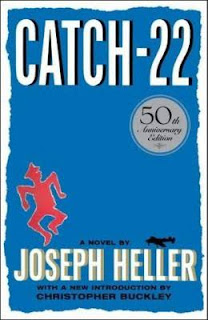 |
| Eric Heather Haddox |
Another blogger came up with the idea of the missing stair. Basically, the missing stair is a problem or person [problem person] in a community that everyone simply steps over.
Do they replace the stair? No. Do they warn other people about the stair? Sure. Does that mean everyone, especially those new to the community know about the missing stair, so that they can do their best to avoid it? Probably not.
In the context of the post, the missing stair is a rapist within the BDSM community. What's staggering is that, although the writer didn't name names or give any identifying information, everyone knew exactly who the post was in reference to.
They knew. They knew they had a rapist in their midst, as in "Oh yeah, that's Charles, the rapist that also happens to be part of my social circle. He's not so bad once you get to know him."
The post over at Pervocracy is worth reading in full and then reading again and sharing with all your friends. Special points for using the phrase "Rape Babysitter."
The story of Profiles and Darrell W. Cox reminds me of this concept—because people knew about the abuse. They knew that there was something off. His fellow actors / employees (?) formed unofficial support groups around this guy. His co-director enabled him every step of the way. Women warned other women to stay away, keep their distance.
We need a new metaphor here, for a person who abuses those under his power with relative impunity, enabled by the system(s) in place around him. Darrell W. Cox was not a missing stair. He was a gaping sinkhole.
For years and years, important things would go missing. They would get too close to the edge of the sinkhole and be swallowed up whole. Dairy cows. A few really nice couches from IKEA, the kind you proudly buy when you get your first apartment. Once, an entire bus full of Swedish tourists got sucked in and was never heard from again.
For nearly three decades, those who lived by the sinkhole whispered stories about it, of what might happen to you if you got too close. Roughly once a year, someone would put up a sign warning passers-by. But the sinkhole would quickly swallow that up too.
When someone would make the bold suggestion that perhaps something might be done about the sinkhole, people would point out that the sinkhole was an extremely gifted communicator. Many spoke of the unique gifting that the sinkhole had to preach and spread the gospel. Yes, there was the matter of the cows and those unfortunate Swedish tourists, but sometimes, sacrifices must be made.
I once worked for a CEO who went through assistants like some people go through jars of Nutella. I think everyone (including the higher-ups) knew that he could be a difficult person to work for (how could they not?), but I have no idea if they knew the extent of it.
He was extremely intelligent and charismatic. Of course he was. Sinkholes always are.
Even now, I wonder how he could've happened. How and why was he allowed to engage in abusive behavior in a professional environment? Was everyone blind to it? Did they just not care? Am I crazy for thinking "This is crazy"?
At a certain point in most abusive contexts, you learn to accept the unacceptable. Gradually, you become tolerant of behavior that in any other context would strike you as absurd, even nonsensical.
Maybe no one bothered to warn you. Maybe everyone around you is acting like this is normal. Maybe there's a giant, gaping sinkhole beneath your feet and, "No big deal. Just walk a mile or two to avoid it and you should be fine."

























